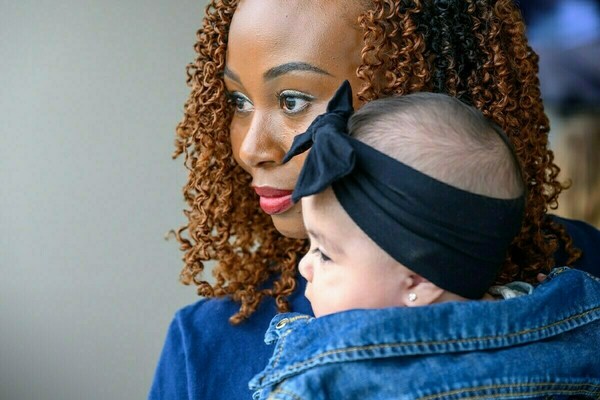No Longer Just a Support Cell: Sarah Light’s research into the impact of glia on the heart
Working to keep our neurons supported, nourished, and protected, the glial cell plays an integral role in maintaining a functioning nervous system. Despite outnumbering neurons, they remain far less understood by scientists, which has caused a recent surge in glial cell research.
Understanding how their dysfunction might contribute to human disease development is a strong motivator for Sarah Light, a postdoctoral researcher at the University of Notre Dame in the Department of Biological Sciences.
Light, who received a National Heart, Lung, and Blood Institute Fellowship for her work, focuses on glial cells in the heart, which is a population of cells that previous researchers in her lab discovered. In the lab, she investigates the purpose of these cells in the hearts of zebrafish.
“We're really interested in questions like where do these cells come from? What do they do? Why are they important and how does this help us better understand heart function?” said Light, who works in the lab of Cody Smith.
Her research adds to a more comprehensive understanding of how the heart functions and aids in providing answers for its possible abnormalities. Knowing if these cells have a part to play in conditions like congenital heart disease, arrhythmias, or even the normal operation of the heart could have immense impacts for the scientific community.
Light was drawn to Notre Dame’s unique balance of being a leading research institution while still maintaining a strong focus on undergraduates.
“I wanted a job with a lab component, but that was really focused on teaching, because that's kind of what I've always been really interested in, the education and advocacy side of science,” Light said.
Notre Dame also offered Light the chance to continue studying zebrafish, which has been a component of all the research she has done prior.
This would further ensure she would be working with students. “I wanted to stay within zebrafish because that's a model system that's very amenable to having a lab that’s primarily staffed by undergraduate scientists,” she said.
In continuing her desire to mentor and advocate for those in science, Light organizes an annual outreach event that brings preschool children into the lab to encourage interest in science at a young age. She also is a Postdoctoral Departmental Representative for the College of Science’s Association for Women in Science (AWIS).
Light feels her innate organizational abilities are a vital component of who she is as a researcher, and credits her love of reading for keeping her mind stimulated outside of the lab–reading over 104 books so far in 2024 alone.
Glia have long been regarded as being passive, supporting cells for neurons. But Light’s research aims to prove these are active cells that truly can have an impact. She looks forward to learning more about what glia can do, and what that might mean for us.
Originally published by at science.nd.edu on November 11, 2024.
Latest Research
- Fighting for maternal healthThe United States has the highest maternal mortality rate of developed nations. An innovative postpartum care model from Notre Dame can save mothers around the globe. Read the story Originally…
- NSF Cyber SMART’s fall meeting shapes fifth year of project, legacy and future plans, and adds new memberThe U.S. National Science Foundation (NSF) Cyber SMART center gathered for its fall meeting on the University of Notre Dame campus this September. The meeting served as a checkpoint with progress reports and new projects from research leads and students…
- Slavic and Eurasian studies professor wins Humboldt fellowship to research how Russia’s religious past shapes its presentWhen Russia invaded Ukraine on Feb. 24, 2022, Sean Griffin realized his second book needed a new title. Griffin, an associate professor in the University of Notre Dame’s Department of…
- Notre Dame’s R.I.S.E. AI Conference builds interdisciplinary collaboration to inform human-centered artificial intelligenceAs artificial intelligence (AI) transforms nearly every sector of society — from healthcare and education to governance and global development — a critical question emerges: How can we conscientiously design and deploy these powerful technologies to positively impact society? This…
- University of Notre Dame joins the Global Coalition of Ukrainian StudiesThe University of Notre Dame has joined the Global Coalition of Ukrainian Studies after signing a Memorandum of Cooperation (MOC), formalized on September 24, 2025, at the Ukrainian Institute of America in New York City. Notre Dame joined four other American…
- The University of Notre Dame’s Mendoza College of Business and Industry Labs team up to inspire national security manufacturing competitiveness in the regionThe South Bend - Elkhart Region is full of manufacturing companies that are poised to grow, and Executive Master of Business Administration (EMBA) and Master of Business Administration (MBA) students at the University of Notre Dame are finding innovative ways to contribute to that growth. Earlier…













